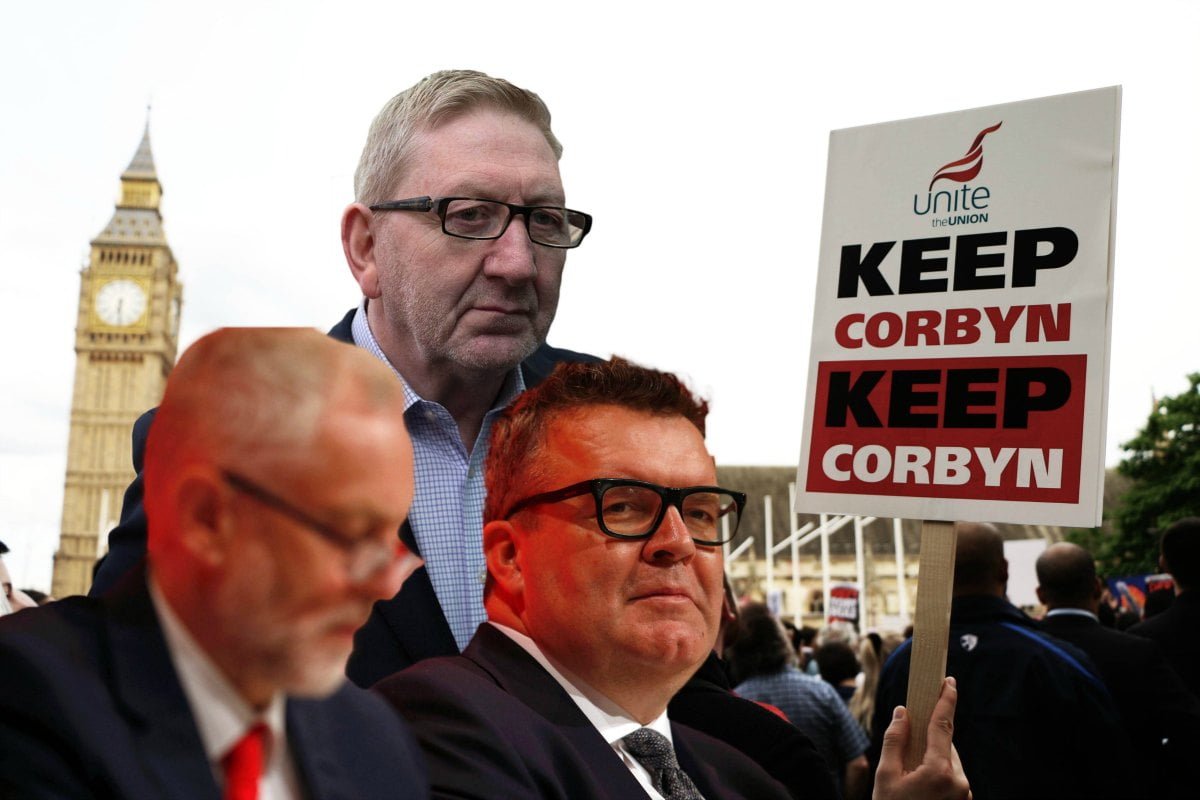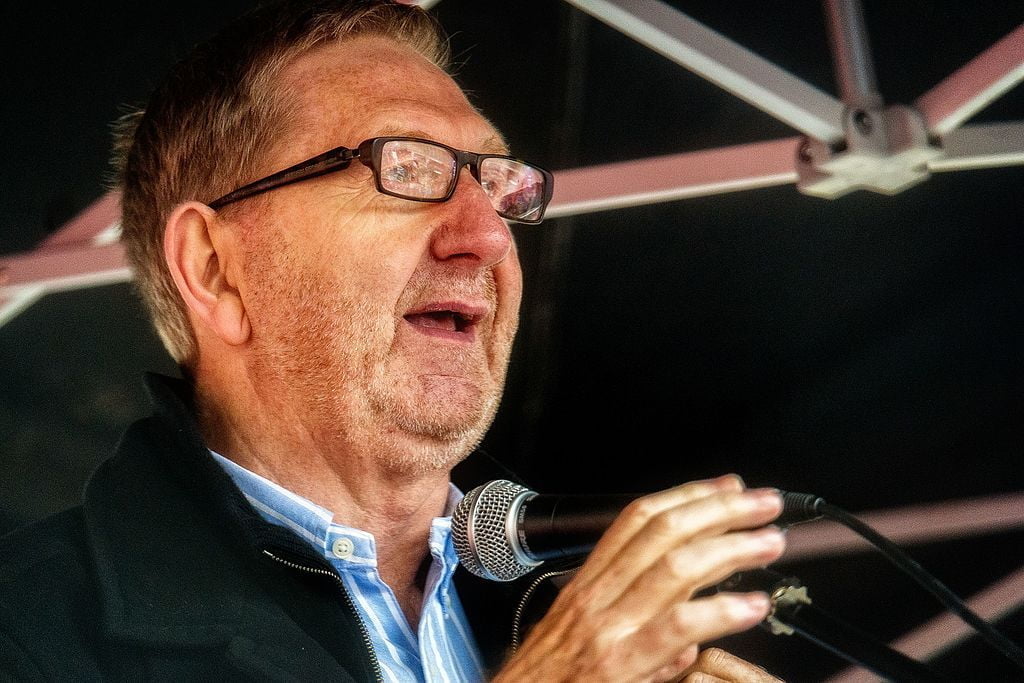The possibility of a Corbyn-led Labour government was given a boost last Friday with the announcement of the election result for the position of Unite the Union general secretary. Len McCluskey’s narrow victory in the Unite leadership contest, however, provides some cautionary lessons to the Left about the way forward for the labour movement.
The possibility of a Corbyn-led Labour government was given a boost last Friday with the announcement of the election result for the position of Unite the Union general secretary. Len McCluskey, the incumbent candidate, was re-elected, receiving 45% of the vote and seeing off a challenge from the right-wing, establishment-backed candidate, Gerard Coyne.
As a result of the pressure from below, McCluskey’s Unite have been one of Jeremy Corbyn’s key backers, coming out firmly against the Blairite coup last summer and helping to mobilise trade unionists to vote for Corbyn. And with McCluskey now at the helm in Unite for a further five years, the Corbyn movement and the Labour Left will be strengthened by the continued support of Britain’s biggest union – both in terms of the current general election campaign, and hopefully also in any Labour leadership contest that might follow.
It is precisely this policy of supporting the left-wing Labour leader that Coyne chose to make the key issue in the race, lambasting McCluskey for using the union’s resources in order to “play Westminster power games” and be a “kingmaker” inside the Labour Party. At the same time, it was clear from the start that it was in fact Coyne – who had the full backing of the Establishment and Labour’s right-wing – who was being used as a pawn in the wider Labour civil war.
It is thanks to this unlimited support from the Blairite bureaucracy and the capitalist press that Coyne was able to come dangerously close to beating McCluskey in the Unite leadership contest, receiving 41% of the vote.
Warning for the Left
Whilst the result will be a blow to the hopes of the Labour Right, the narrow margin of McCluskey’s victory – by only 5,500 votes – must also be seen as a warning to the Left.
The close run nature of the contest was due to a number of factors. Firstly, the turnout was extremely low, at only 12%. The archaic postal ballot voting system imposed on the trade unions is partially at fault for this, as noted by Unite officials themselves. At the same time, many McCluskey supporters may have chosen not to vote, assuming that the incumbent’s victory was a foregone conclusion.
The Unite leadership, however, must also accept the blame for this low turnout, which saw McCluskey’s vote fall by more than half since the last Unite general secretary election – from 145,000 in 2013 to 59,000 this time round. Whilst Unite’s political backing for the Corbyn movement is to be applauded, many problems remain within the union: most notably the lack of militancy in relation to industrial strategy; and also in terms of internal union democracy.
Defeats in important disputes, such as that at Grangemouth, and an absence of fighting leadership industrially going forward have clearly had a demoralising effect on Unite’s 1.4 million members, who are looking for a lead in the struggle against job cuts and attacks on wages, terms and conditions.
It is for these reasons that Ian Allinson, a grassroots candidate in the Unite leadership election, was able to find a certain echo and pick up 17,000 votes – a far cry from rank-and-file candidate Jerry Hick’s 80,000 in the 2013 contest, but nevertheless a sizeable chunk (13%) of this election’s votes.
Fighting leadership needed
Despite making many valid criticisms of McCluskey’s tenure as Unite general secretary, however, Allinson and his backers on the Left – in particular, the Socialist Workers Party – must be roundly condemned for their irresponsible and reckless attitude in relation to this leadership election. With their sectarian approach, Allinson and the SWP split the Left vote and almost allowed Coyne and the Blairite wing of the Labour Party to inflict a potentially mortal blow against the Corbyn movement.
Fortunately, despite this scandalous ultra-left behaviour, McCluskey won. Nevertheless, let this be another cautionary lesson – this time to those on the Left who take a frivolous approach to such matters, playing games with politics and putting their own narrow interests before those of the wider movement.
Above all, the Unite leadership election results are a warning to the leaders of the labour movement: if a fighting lead is not offered to workers, the movement could ebb and the Right could organise to regain control. With a bold, radical, and militant programme, however, we can build a mass movement – based on the organisation of the working class – capable of kicking out the Tories and transforming society along socialist lines.







